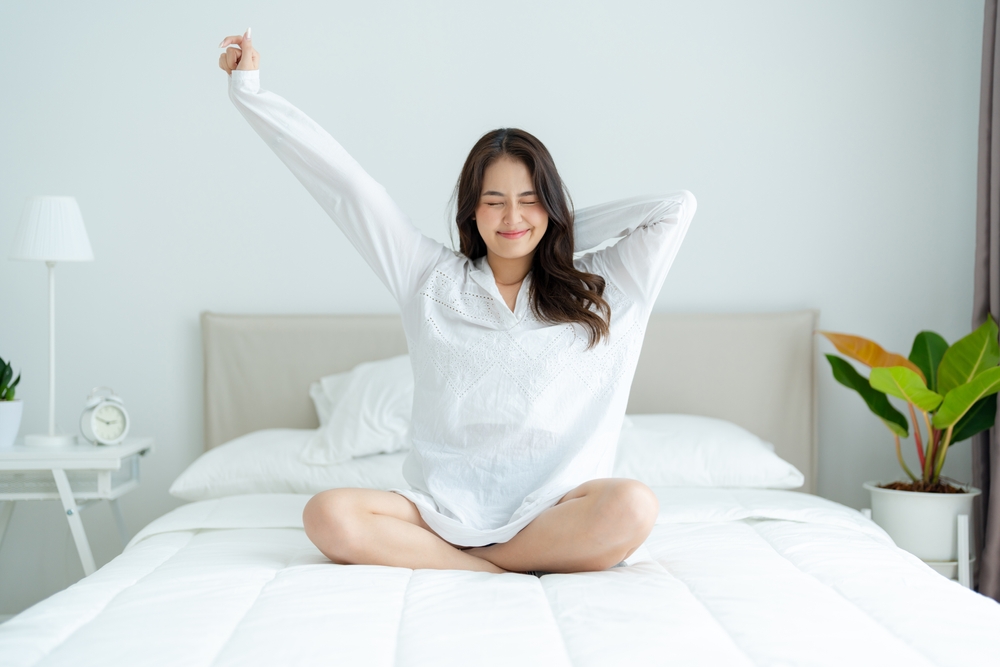
We are obsessed with night routines. We buy the silk pillowcases, drink the sleepy-time tea, and set our blue-light filters. But what if we are focusing on the wrong end of the day? While a good night routine *ends* a day, a good morning routine *defines* one. How you start your day sets your psychological baseline. It determines whether you spend the next 16 hours feeling proactive and calm or reactive and chaotic. The morning impact on mental health is profound. It’s time we gave it the attention it deserves.
Why Your Brain Is Primed for Impact at Dawn
When you first wake up, your brain is in a unique state. It is moving from sleep (delta waves) to a more alert state (beta waves). That in-between time is highly suggestible. What you feed your brain in these first few minutes matters. If your first input is stressful news or a frantic email, you are priming your nervous system for anxiety. However, if the first input is silence, light, or gratitude, you set a foundation of calm.
The “Phone First” Habit That Hijacks Your Day
This is the single worst thing you can do for your mental health. Grabbing your phone immediately floods your brain with cortisol, the stress hormone. You are instantly bombarded with other people’s problems, demands, and curated lives. This puts you in a defensive, reactive posture before your feet even hit the floor. Your day is hijacked. This habit, more than any other, sabotages your morning impact on mental health.
How to Win the Day in the First 10 Minutes
You do not need an elaborate, two-hour routine. You just need 10 minutes. Before you look at a screen, do three simple things. First, hydrate. Drink a full glass of water. Your brain is dehydrated and needs it. Second, move. Do 20 jumping jacks or a simple 5-minute stretch. This gets blood flowing. Third, get light. Open the blinds and let sunlight hit your face. This signals to your brain that the day has begun.
The Power of a “Brain Dump” Over Meditation
Meditation is great, but many people find it difficult. A “brain dump” is a more active alternative. Take a notebook and write down everything on your mind. All your anxieties, your to-do list items, and your random worries. Get them out of your head and onto paper. This simple act clears your mental cache. It allows you to start the day with a focused, quiet mind.
Setting One “Micro-Goal”
A huge source of anxiety is feeling overwhelmed. We wake up to a mountain of tasks. The antidote is to set one, tiny “micro-goal” and achieve it immediately. This could be “make the bed” or “unload the dishwasher.” By accomplishing a small task, you get an instant hit of dopamine. This creates a positive feedback loop. It proves to your brain that you are capable and in control.
Choosing Proactive Calm Over Reactive Chaos
Ultimately, your morning routine is a choice. You can choose to be reactive. You can let the world dictate your mood. Or you can choose to be proactive. You can create a 10-minute buffer. This buffer protects your peace. It allows you to be the one who decides how your day will feel. This proactive stance is the key. The morning impact on mental health is not about what you do; it’s about what you *protect*.
Your Day Is Won in the First 20 Minutes
A good night’s sleep is important. A good morning, however, is powerful. It is the difference between owning your day and your day owning you. Stop letting your phone be your alarm clock. Stop giving the first moments of your day to strangers on the internet. Take back your morning. You will find that when you win the morning, you win the entire day.
What is the one morning habit you refuse to skip for your mental health? Share it in the comments!
What to Read Next…
- 6 Small Morning Routines That Fight Off Anxiety
- 6 Steps to Create a Peaceful Morning Routine
- 8 Morning Statements That Set the Tone for Success
- Do These 6 Things First Thing In The Morning To Increase Your Productivity
- 12 Brutally Honest Relationship Lessons No One Tells You
The post Forget Night Routines: Why Your Morning Has a Bigger Impact on Mental Health appeared first on Budget and the Bees.







